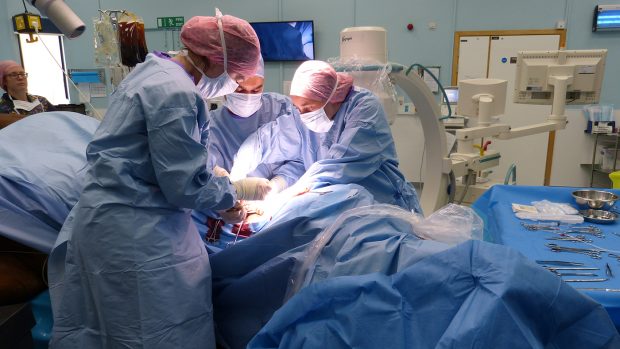Heart attacks in horses are a rare but extremely traumatic event that can occur without warning during ridden exercise or when the horse is exercising at liberty in the field.
The problem is not exclusive to top sport horses, such as three-day eventers and racehorses; any horse in any discipline can be affected. In a 2005 study funded by the International League for the Protection of Horses 25% of sudden death fatalities were pleasure horses, and exercise doesn’t even have to be that strenuous or fast.
Healthy horses are on average 50 times more likely to die during exercise than healthy people, but the causes of death are very different. The human casualties who collapse during marathons are much more likely to have succumbed because of an inherited disorder of the heart muscle or of the electrical activity in the heart. These conditions do not exist in horses to our knowledge.
Why do horses die during exercise?
When the sudden death of an apparently healthy horse occurs during exercise, almost half are due to massive fatal haemorrhage (bleeding) from arteries or veins of either the chest or abdomen.
The remaining, largest and most perplexing group of sudden death fatalities has no distinct abnormalities to explain the demise at post-mortem, except non-specific signs of sudden cardiac failure.
Unfortunately, the underlying reason for a large blood vessel in the abdomen or chest breaking and causing major bleeding in a horse is usually not clear.
Before routine worming became the norm, sudden deaths were attributed to artery damage caused by migrating larvae of an equine parasite (strongylus vulgaris). However, since worming became much more effective, thereby reducing potential larval damage to arteries, the prevalence of exercise-related fatal haemorrhage does not seem to have reduced.
It makes sense that, if a blood vessel is weak, tearing is most likely to occur during exercise because that is when there is the highest pressure within it. When the horse’s heart rate increases with work, the pressure in the arteries increases dramatically, which could potentially cause a weakened vessel wall to burst.
During fast exercise in horses, the pressure within vessels, particularly those going to and from the lungs, is much higher than in people. This probably partly explains why healthy horses die more often than people during exercise.
Horses in general have very healthy hearts because we have bred them for speed, not for looks. They are not affected by congenital or inherited heart disease, unlike cats, dogs and humans. Also horses rarely drink beer, breakfast at McDonalds or smoke so are not affected by the build-up of fatty substances in their coronary arteries like some humans are.
What is a heart attack?
The term “heart attack” refers to the abnormal rhythm of the heart (ventricular fibrillation) that results in its total failure to pump oxygenated blood to the brain. Once the brain’s oxygen supply fails, death follows soon afterwards.
We do not yet understand the triggers that cause the majority of equine fatalities to develop ventricular fibrillation during exercise. At post-mortem there are no obvious changes to the heart.
It seems likely that high body temperatures, low oxygen levels, increased acidity in the blood and changes to the concentration of certain electrolytes, particularly potassium, that occur normally during exercise in horses might make the abnormal rhythms more likely to develop and be sustained, but the actual trigger is as yet unclear.
What does seem clear is that affected horses are usually clinically normal and do not have any previous history of heart murmurs or other problems.
While there are still so many unanswered questions, vets and scientists are striving to understand this condition better. The Home of Rest for Horses is currently helping to improve the knowledge of vets by funding a three-year non-invasive research project into heart failure to the tune of £63,000.
H&H, 28 July 2005




